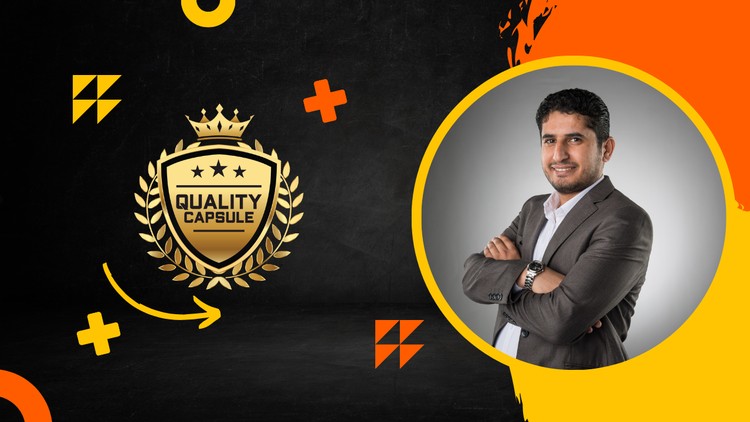
Building a Solid Foundation for Quality Excellence: Mastering Key Concepts, Techniques, and Best Practices
What you will learn
Understand the concept of quality and its significance in cost management.
Learn to identify and meet customer needs and expectations effectively.
Gain insights into Lean Management principles and how they optimize processes to create customer value.
Understand the nature of processes and their different states.
Explore the concept of variability in processes and its implications.
Learn techniques for assessing process capability, stability, reliability, and validity to drive continuous improvement.
Identify and eliminate waste in processes to enhance efficiency and quality.
Manage risks effectively within the quality management framework.
Gain an introduction to auditing and quality assessment processes to ensure adherence to quality standards.
Explore the role of statistics in quality management and decision-making.
Learn about different levels of measurement and data analysis techniques.
Understand descriptive statistics such as mean, median, and mode, and measures of dispersion and variability.
Gain insights into sampling techniques for effective data collection and analysis in quality improvement efforts.
Learn strategies to identify, measure, and prioritize customer value.
Understand how to incorporate customer feedback into quality improvement initiatives.
Explore the core principles of Lean Management, including waste reduction, continuous improvement, and respect for people.
Learn practical techniques such as value stream mapping, 5S, and Kanban to streamline processes and enhance efficiency.
Explore techniques for identifying, assessing, and mitigating risks associated with quality management processes.
Description
Foundations of Quality Management: Understanding Key Concepts and Techniques course is an intensive course designed to equip participants with a deep understanding of quality management principles and practices. Whether you’re new to the field or seeking to enhance your expertise, this course provides a comprehensive exploration of quality concepts, frameworks, and methodologies.
Throughout the course, participants will delve into the fundamental pillars of quality management, including the quality dimensions for both products and services. They will gain insights into Total Quality Management (TQM) and Continuous Quality Improvement (CQI), learning about these approaches’ essential elements and benefits.
From understanding the cost of quality to identifying and eliminating waste, participants will explore various quality measures and metrics. They will learn how to assess process capability, reliability, and stability, and gain insights into reliability engineering and statistical analysis techniques.
‘;
}});
One of the key highlights of the course is its focus on practical application. Participants will engage in interactive exercises and case studies, allowing them to apply theoretical knowledge to real-world scenarios. They will also learn about the importance of auditing and quality assessment in ensuring continuous improvement and adherence to quality standards.
By the end of the course, participants will emerge with the skills and confidence to implement effective quality management strategies in their organizations. Whether in manufacturing, service industries, or any other sector, this course equips participants with the tools they need to drive quality and achieve operational excellence.
#QualityManagement #TotalQualityManagement #ContinuousImprovement #ProcessExcellence #QualityMetrics #ReliabilityEngineering #StatisticalAnalysis #OperationalExcellence #QualityAssessment #ProfessionalDevelopment
